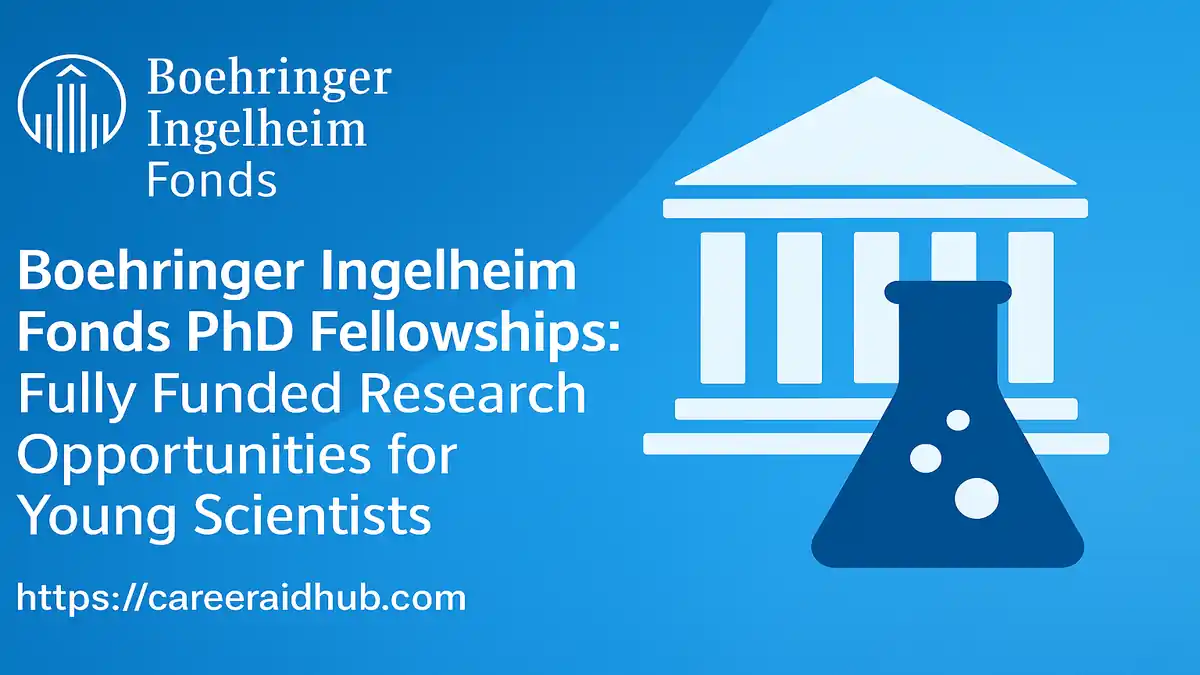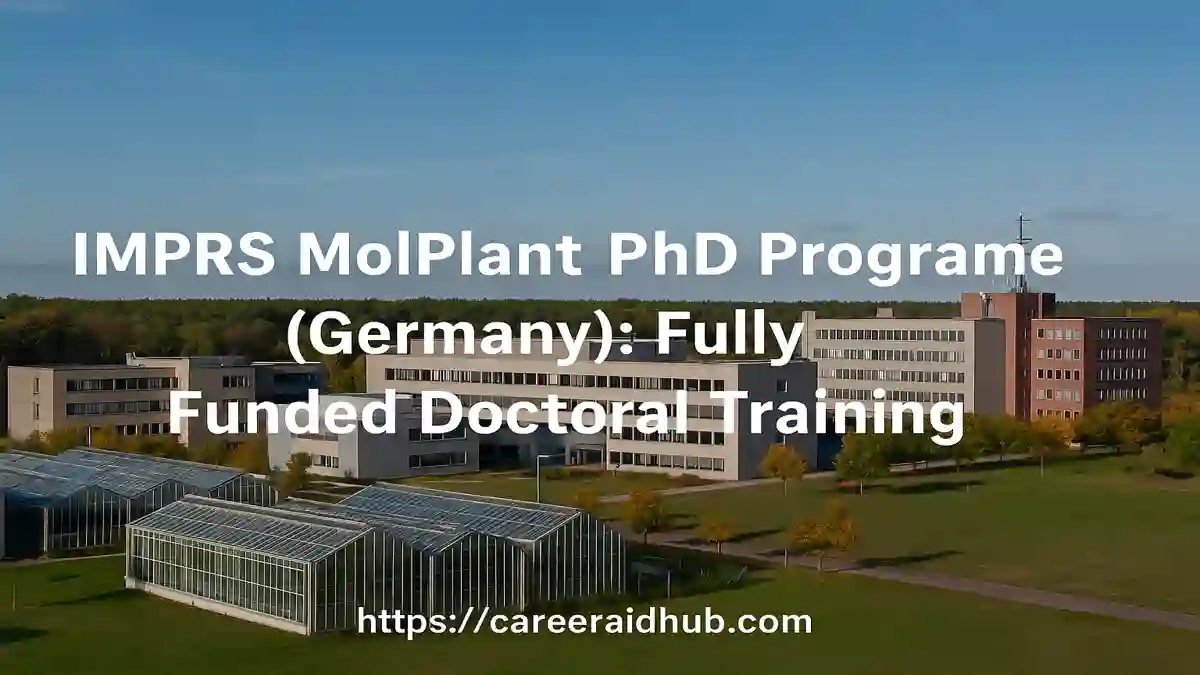Introduction: Launching Scientific Careers Through BIF PhD Fellowships
The Boehringer Ingelheim Fonds (BIF) provides one of the most competitive and globally recognized funding programs for early-stage researchers in basic biomedical science. Designed for exceptional junior scientists worldwide, the fellowship offers financial and academic support for 2 to 3.5 years to pursue a PhD project in an internationally leading laboratory. Emphasizing independent, curiosity-driven research, the BIF PhD fellowship promotes global scientific collaboration and research integrity.
The Boehringer Ingelheim Fonds (BIF) offers fully funded PhD fellowships for 2 to 3.5 years to outstanding junior scientists conducting basic biomedical research in leading international labs. This prestigious fellowship supports research excellence and academic independence through financial aid, scientific guidance, and global networking opportunities.
About the Fellowship Program
Program Name: Boehringer Ingelheim Fonds (BIF) PhD Fellowships
Host Country: Global – Host lab must be internationally recognized
Funded By: Boehringer Ingelheim Fonds (non-profit foundation, Germany)
Duration: 2 to 3.5 years
Study Mode: Full-time, on-site (in-person research at host lab)
Objectives of the BIF PhD Fellowship: The core mission of the BIF PhD Fellowship is to foster academic excellence and nurture independent scientific thinking
style="font-size: revert;"> among early-career researchers in the biomedical sciences. The foundation seeks to:
-
- Enable highly talented PhD students to undertake basic biomedical research at a top-tier institution
- Provide a secure funding environment, allowing fellows to fully dedicate themselves to their scientific pursuits
- Encourage international mobility and collaboration
- Strengthen a global network of researchers committed to innovation and academic freedom
Eligibility Criteria: Who Can Apply?
BIF welcomes applications from junior scientists of all nationalities, but applicants must meet several key eligibility requirements to be considered:
Academic Requirements
-
- Applicants must hold a first-class Master’s degree or equivalent in a relevant subject (e.g., biology, molecular biology, genetics, neuroscience, biochemistry).
- Candidates must not have been engaged in their PhD research project for more than six months at the time of application.
Research Area
-
- The fellowship exclusively supports basic biomedical research aimed at understanding the underlying principles of life and disease.
- Applied, clinical, or translational research focused on patient outcomes, drug development, or diagnostics is not eligible.
style="text-align: justify;">Host Laboratory
-
- The PhD project must be conducted in an internationally leading laboratory, preferably located in a country other than the applicant’s home country.
- The laboratory must be able to provide a research environment conducive to scientific excellence and growth.
Financial Support and Benefits
The BIF PhD Fellowship provides a generous funding package designed to cover the fellow’s living and research-related expenses, along with additional support to encourage academic independence.
Key Funding Components:
-
- Monthly stipend tailored to the cost of living in the host country and family circumstances
- Travel allowances for the fellow and family members (if applicable)
- Seminars and networking events organized by BIF for fellows to exchange scientific ideas and experiences
- Scientific mentoring and personal support by BIF program managers
Importantly, fellows are considered scholarship recipients rather than employees, which grants them greater flexibility and scientific autonomy during their research.
What Qualifies as Basic Biomedical Research?
To be eligible for funding, the proposed PhD project must fall within the realm of basic research, defined as efforts to uncover fundamental biological mechanisms at the molecular, cellular, or systemic level. Examples include:
-
- Genetic and epigenetic regulation
- Protein structure and function
- Signal transduction and metabolic pathways
- Developmental biology and morphogenesis
- Synaptic plasticity and systems neuroscience
- Immune cell signaling and
differentiation
Projects focused on drug trials, medical devices, diagnostics, or therapeutic interventions are not supported under this program.
Application Process: Step-by-Step Instructions
Applying for the BIF PhD Fellowship requires thorough preparation and adherence to their detailed submission process.
Step 1: Verify Eligibility: Ensure your research project, academic background, and host laboratory meet the outlined criteria. Projects already underway for more than six months are not eligible.
Step 2: Prepare Application Materials: You must submit the following:
-
- A fully completed BIF application form
- A comprehensive project proposal (maximum 5 pages), written by the applicant
- Two academic reference letters
- A signed letter of confirmation or acceptance from the host laboratory
- Certified copies of academic degrees and transcripts (BSc, MSc, or equivalent)
All documentation must be submitted in English.
Step 3: Submit via BIF Online Portal: Completed applications should be submitted electronically through the BIF application portal. Hard copies are not required.
Step 4: Evaluation and Decision: Applications undergo a rigorous peer-review process, including:
-
- Initial review by BIF scientific staff
- External evaluation by field-specific academic experts
- Final selection by the BIF Board of Trustees
Notifications are typically issued within 8 to 10 weeks following the application deadline.
Application Deadlines










